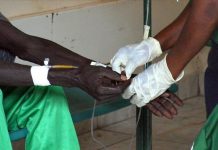ALTHOUGH pregnancy termination is restricted by law in Tanzania, it is widely practiced and almost always unsafe, and contributes to the country’s high maternal morbidity and mortality.
Yet the majority of abortion-related deaths are preventable, as are the unintended pregnancies associated with abortion.
Better access to contraceptives, more comprehensive post-abortion care and greater availability of safe abortion services within the current legal framework are critical.
In the first nationally representative study of the incidence of abortion and the provision of post-abortion care in Tanzania, researchers found that clandestine abortion is common and is a major contributor to maternal death and injury.
Tanzania’s national abortion rate— 36 per 1,000 women of reproductive age— is similar to that in other East African countries.
However, within Tanzania, abortion rates vary considerably by zone. According to the World Health O rganisation (WHO ) , an estimated 22 million unsafe abortions take place In Tanzania, as in many other low income countries.
Induced abortion is only legally available if the pregnancy is a threat to the woman’s life. Conseq uently, women who want to terminate an unwanted pregnancy have to resort to illegal interventions and thereby put their lives and health at risk.
The problem of unsafe induced abortion is reflected in hospital statistics, which show significant numbers of alleged miscarriage.
Given the legal restrictions associated with abortion, it is difficult to obtain reliable information on its prevalence and to assess the magnitude of the morbidity and mortality associated with it. Unsafe abortion represents one of the leading causes of maternal deaths in Tanzania.
According to the Ministry of Health and Social Welfare, 16 percent of maternal deaths are due to complications from abortion; this is comparable to the proportion of maternal deaths from unsafe abortion in Eastern Africa (18 percent).
The Tanzanian government must continue to address the issue of unsafe abortion to prevent maternal deaths and improve women’s health.
Increasing access to family planning, intensifying family planning education and offering a wide range of methods and counseling can reduce the incidence of unsafe abortion and its consequences by preventing unintended pregnancies.
It is critical to raise health care providers’ awareness of the content and scope of the Tanzanian abortion law and to equip them with appropriate training to provide safe abortion services within legally permitted circumstances.







